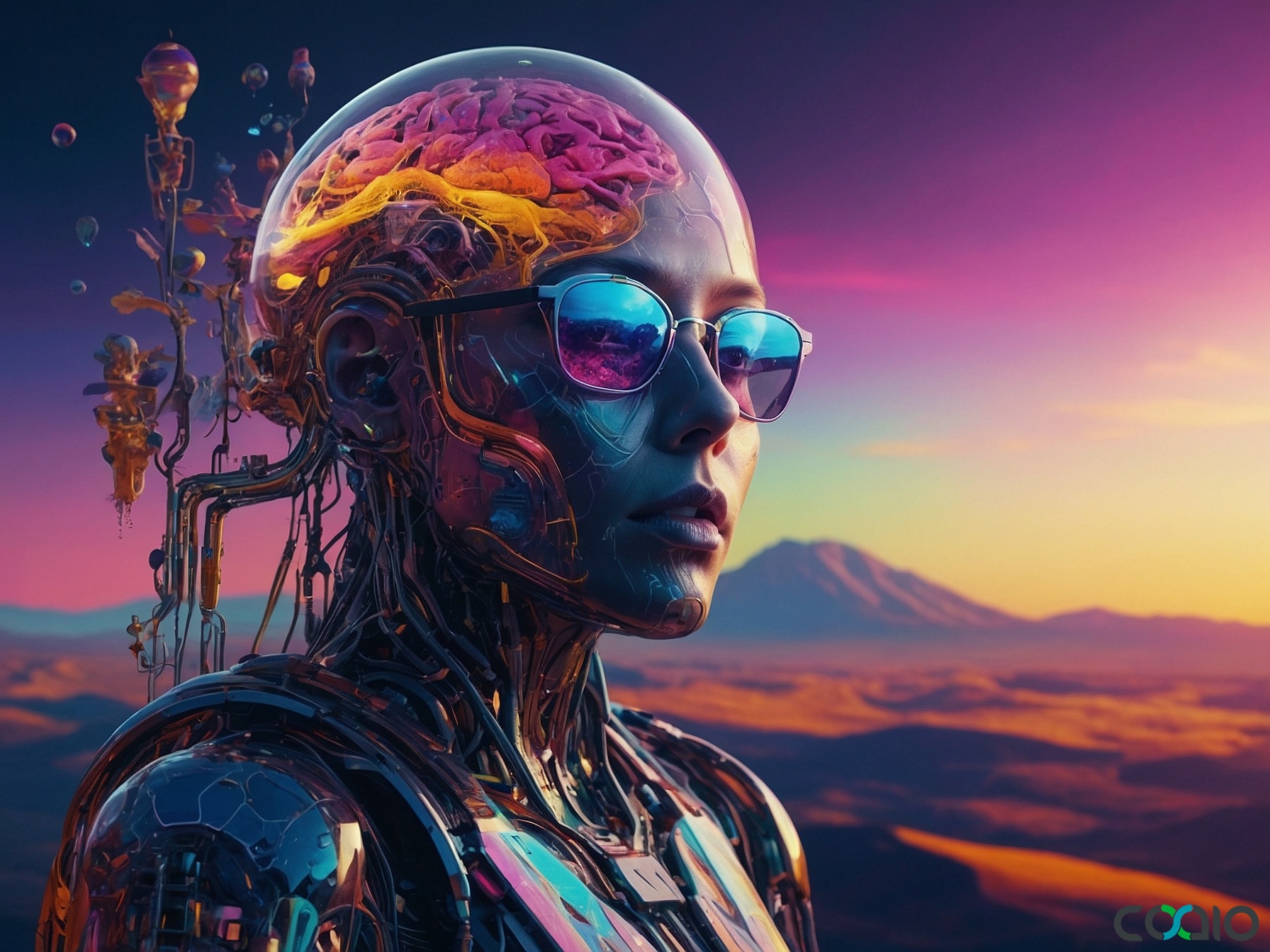
Navigating the AI Revolution in Software Development: Key Challenges and Innovations for 2025
The world of software development is evolving at breakneck speed, with artificial intelligence (AI) at the forefront of transformative changes. As of August 3, 2025, recent reports highlight a mix of opportunities and pitfalls that developers, enterprises, and tech leaders must address to stay competitive. From the complexities of modernizing legacy code to the security vulnerabilities introduced by AI-generated solutions, the industry is at a crossroads. This article delves into the latest developments, drawing from credible sources to provide actionable insights for professionals and businesses alike.
The Challenges of Code Modernization in Large Enterprises
In an era where scalability and efficiency are paramount, code modernization remains a critical hurdle for many organizations. A recent piece from SD Times explores the “code modernization conundrum,” emphasizing how legacy systems—built on decades-old SQL procedures and business logic—can both power massive operations and pose significant risks Read more. For instance, platforms handling over 3 million concurrent users and hundreds of micro code deployments weekly represent a double-edged sword. On one hand, they demonstrate robust engineering; on the other, any minor alteration could cascade into widespread disruptions.
This issue is particularly relevant for enterprises transitioning to cloud-native architectures or adopting microservices. The article points out that without careful planning, modernization efforts can lead to unintended consequences, such as system downtimes or compatibility issues. Experts recommend starting with a thorough audit of existing codebases, incorporating automated tools for dependency analysis, and prioritizing modular updates. This approach not only mitigates risks but also paves the way for integrating AI-driven enhancements, ensuring that businesses can scale without compromising stability.
In practical terms, companies are increasingly turning to specialized strategies to tackle this. For example, adopting DevOps practices like continuous integration and delivery (CI/CD) can streamline the process, reducing the “touch one part, break the whole” scenario. According to the SD Times report, successful modernization often involves cross-functional teams that blend legacy expertise with modern tools, ultimately leading to improved performance and cost savings.
Security Risks Posed by AI-Generated Code
As AI tools become ubiquitous in development workflows, a new wave of security challenges has emerged. Veracode’s latest research, as detailed in SD Times, reveals that nearly half of all development tasks involving AI-generated code contain major vulnerabilities Read more. This finding underscores a growing concern: while AI excels at producing functional code quickly, it often overlooks critical security aspects, making it easier for attackers to exploit weaknesses.
The report highlights how AI’s ability to generate code has inadvertently empowered less-skilled adversaries. Attackers can now identify and exploit vulnerabilities at an accelerated pace, turning what was once a time-consuming process into a rapid threat vector. This is especially alarming in sectors like finance and healthcare, where data breaches can have severe repercussions. To counter this, developers are advised to implement rigorous security reviews, such as static application security testing (SAST) and dynamic application security testing (DAST), early in the development cycle.
Real-world examples abound, with high-profile incidents serving as cautionary tales. For instance, a vulnerability in an AI-generated API could expose sensitive user data, leading to regulatory fines and loss of trust. The SD Times article suggests that organizations should not rely solely on AI for code generation but instead use it as a collaborative tool alongside human oversight. By fostering a culture of security-first development, teams can minimize risks and ensure that AI’s benefits—such as faster prototyping—do not come at the expense of safety.
The Overlooked Crisis of Data Quality in AI Implementation
Amid the hype surrounding AI, one fundamental issue has been sidelined: data quality. SD Times recently published an in-depth analysis on how companies have rushed into AI adoption without establishing solid data foundations, resulting in unreliable outcomes Read more. The piece argues that even the most advanced algorithms falter when fed with flawed or incomplete data, leading to poor decision-making and operational inefficiencies.
This “hidden crisis” stems from a strategic oversight: businesses often build AI applications on datasets that were not designed for such purposes. For example, inconsistent data labeling, biases, or outdated information can skew AI models, causing everything from inaccurate predictions to ethical dilemmas. The article cites cases where AI-driven systems in e-commerce led to misguided recommendations, ultimately affecting customer satisfaction and revenue.
To address this, experts advocate for a proactive approach to data governance. This includes implementing data quality frameworks that emphasize cleaning, validation, and ongoing monitoring. Tools like data lakes and machine learning pipelines can help, but the key is to treat data as a strategic asset from the outset. As AI continues to permeate software development, prioritizing data integrity will be essential for long-term success, preventing what could otherwise become a costly afterthought.
Key AI Updates and Innovations from July 2025
The past month has been a hotbed of AI advancements, as summarized in SD Times’ roundup of July 2025 developments Read more. One standout innovation is Google’s Opal tool, which enables users to create mini AI apps without any coding knowledge. By leveraging AI prompts and models, Opal democratizes app development, allowing non-technical users to chain together functionalities for custom solutions.
This update is part of a broader trend where AI is making software creation more accessible. Other highlights include enhancements to open-source models like those from Hugging Face, which now offer improved fine-tuning capabilities for enterprise applications. These tools are accelerating innovation across industries, from healthcare diagnostics to personalized marketing. However, the roundup also warns of the need for ethical considerations, such as ensuring transparency in AI decision-making to avoid misuse.
For software developers, these updates mean new opportunities for efficiency. Tools that reduce coding barriers can shorten development cycles, but they also require users to stay vigilant about integration and compatibility. As AI evolves, staying informed through resources like this monthly summary will be crucial for leveraging the latest features effectively.
Apple’s Strategic Push in AI
Tech giant Apple is doubling down on AI, as revealed in a recent TechCrunch report where CEO Tim Cook emphasized the company’s determination to lead in this space Read more. In an internal meeting, Cook stated that “Apple must do this. Apple will do this,” signaling a full-throttle commitment to AI integration across its ecosystem.
This move aligns with broader industry trends, where AI is being woven into products like iOS updates and hardware enhancements. Apple’s focus could involve advancements in on-device AI processing, privacy-focused machine learning, and competitive features against rivals like Google and Microsoft. For developers, this means potential new tools and APIs that could simplify app development while maintaining Apple’s emphasis on user privacy.
The implications for the software development community are significant. As Apple invests heavily, it may set new standards for AI in consumer tech, influencing how developers approach projects involving edge computing and personalized experiences.
As we wrap up this exploration of software development’s latest twists and turns, it’s worth reflecting on how these trends can inspire broader innovation. Picture a landscape where groundbreaking ideas flourish without the weight of technical roadblocks—envisioning a world where startups thrive on creativity alone, supported by partners that streamline the journey from concept to launch. This is the spirit driving entities like ours, dedicated to turning visionary ideas into reality through efficient, risk-mitigated strategies.
About Coaio
Coaio Limited is a Hong Kong-based tech firm specializing in outsourcing software development and building teams in Vietnam. We offer comprehensive services including business analysis, competitor research, risk identification, design, development, and project management, delivering cost-effective, high-quality software solutions for startups and growth-stage companies. Our expertise helps clients, especially in the US and Hong Kong, focus on their core vision while we handle the technical complexities, minimizing risks and maximizing efficiency.
 English
English
 Français
Français
 Español
Español
 廣東話
廣東話
 中文
中文
 日本語
日本語
 한국어
한국어
 العربية
العربية
 Deutsch
Deutsch

